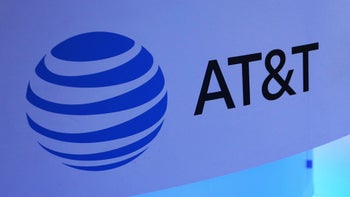Xiaomi sues the U.S. seeking to reverse Trump's blacklisting of the company

A couple of weeks ago, when Donald Trump was president, he decided to make things difficult for yet another Chinese tech company before leaving the White House. He ordered that all Americans divest themselves of any investments in nine Chinese firms that allegedly have ties to the country's military. One of the companies blacklisted was tech manufacturer Xiaomi. Under the blacklisting, U.S. investors must sell their Xiaomi shares or sell any other investment made in Xiaomi by November 11th, 2021.
After we posted the original article, Xiaomi sent us a statement that said, "The Company has been in compliance with law and operating in compliance with the relevant laws and regulations of jurisdictions where it conducts its businesses. The Company reiterates that it provides products and services for civilian and commercial use. The Company confirms that it is not owned, controlled, or affiliated with the Chinese military, and is not a “Communist Chinese Military Company” defined under the NDAA. The Company will take appropriate course of actions to protect the interests of the Company and our stakeholders."
Today, Bloomberg reported that Xiaomi, which is the third largest smartphone manufacturer in the world at last count, has initiated a lawsuit against the U.S. Xiaomi wants the court to order the American government to reverse the blacklisting which it calls "unconstitutional." The suit lists Defense Secretary Lloyd Austin and Treasury Secretary Janet Yellen as defendants even though neither of the pair had their current positions when the Trump administration announced the blacklisting. Austin and Yellen were nominated to their current positions by President Joe Biden who did not take office until January 20th. That was five days after the Trump administration ordered that Americans divest themselves of any investments in Xiaomi.

The Mi Band fitness tracker is one of the few products it makes that is available in America
This is actually a serious matter for the company. The manufacturer said, "Xiaomi faces imminent, severe, and irreparable harm if the Designation remains in place and the restrictions take effect." The firm has been on the rise, especially in India where the globe's second largest smartphone market is hurt by the country's low per capita income. With the average annual paycheck in the country valued at approximately $2,000 USD, Xiaomi's value for money pricing has helped it sell plenty of handsets to Indian consumers.
Ironically, considering that the order came from the U.S., Xiaomi does not sell its smartphones in America. It does sell some products in the states such as power banks and its extremely popular Xiaomi Mi Band fitness tracker.
Under the Trump administration, Chinese smartphone and networking equipment companies like Huaweio and ZTE were considered threats to national security. Huawei lost its U.S. supply chain, including Google, and cannot purchase cutting-edge chips it designed itself. After selling off its Honor sub-brand, Huawei is reportedly looking to exit the flagship segment of the handset market.












Things that are NOT allowed: